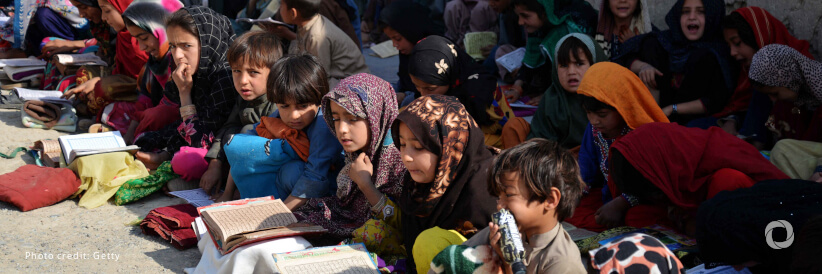The United Nations World Food Programme (WFP) welcomes a contribution of EUR15 million (US$16.4 million) from Germany, through its Federal Ministry for Economic Cooperation and Development (BMZ), raising the total German contribution to more than EUR78 million (US$83.1 million) in 2023. The funding will go towards activities that strengthen the resilience of vulnerable communities and WFP’s school feeding programme that helps keep girls and boys in primary schools.
“Germany stands with the Afghan people, and we continue our engagement to help communities stand on their own feet,” said Katharina Spiess, BMZ’s Head of Division “Crisis management, Reconstruction and Transitional Development Assistance. Investments into food-insecure communities and school children are investments into a prosperous future,” she added.
WFP’s activities aim at increasing the productivity of rural communities and bolstering the local economy, protecting and safeguarding villages and fields from environmental disasters, restoring and improving the management of natural resources as well as to build climate-smart food value chains. While building or rehabilitating critical community assets, food-insecure participants will receive food or cash to cover their families’ food needs for up to nine months. The school feeding programme helps children cover their food needs through daily nutritious school snacks that also help them concentrate on the lessons and keep healthy.
“The impact of the climate crisis is massive in Afghanistan, battering communities with droughts, floods and other disasters and strengthening food systems is more important than ever,” said Hsiao-Wei Lee, WFP Country Director in Afghanistan, “WFP will support smallholder farmers, connect them with markets and work with women to grow vegetables, start dairy production or raise livestock and help them earn their income. This helps women feed their families and has an empowering effect in the communities.”
Almost 22,000 members of food-insecure families will participate in construction activities while receiving food assistance, benefiting more than 150,000 people. All these projects work include both men and women and are complemented with sensitization on hygiene and nutrition, gender and social cohesion.
The contribution will also help WFP reach nearly 190,000 schoolgirls and boys in primary schools with nutritious school snacks, many of which are baked fresh daily in village bakeries from locally procured ingredients, creating jobs and bolstering the local economy.
This BMZ funding is a significant boost to WFP’s efforts to address humanitarian needs and build the resilience of people in Afghanistan and follows previous contributions of EUR167 million (US$169 million) in 2022 and more than EUR145 million (US$167 million) in 2021, putting Germany among the top five donors for WFP in Afghanistan in past three years.

